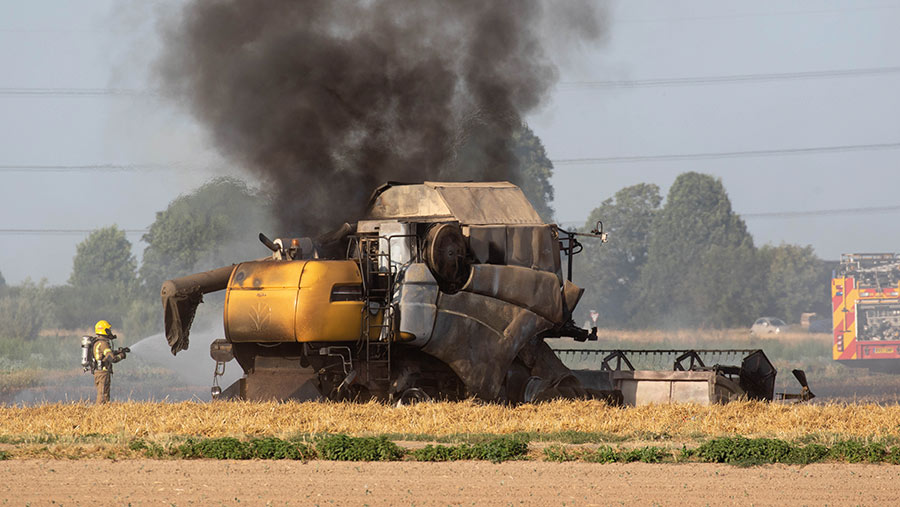Harvest heatwaves likely to lead to surge in farm fires
 © Tim Scrivener
© Tim Scrivener Hotter summers and record temperatures are expected to become more commonplace for future harvests, therefore increasing the risk of farm fires.
In 2022, the UK faced an exceptionally hot and dry harvest with temperatures breaking 40C, which resulted in a 21% increase in the number of farm fires, according to figures from NFU Mutual.
The insurance company found that farm fires cost £83.5m in 2022, with more than 2,200 claims involving fires damaging crops, buildings or farm equipment. Cases involving combine fires doubled on the year to 258.
See also: Farm fire protection advice issued amid water scarcity warning
Hannah Binns, NFU Mutual rural affairs specialist, said: “The huge increase in the number of farm fires in 2022 compared with 2021 highlights how important it is for farmers to prepare for very hot and dry summers in the future.
“For weeks on end last summer, the countryside was so dry that a spark or overheating combine bearing could lead to a fire, engulfing the machine and spreading to the surrounding crops.”
Fire prevention
Andy Manson, head of risk management services at NFU Mutual, said: “With scientists predicting hotter, drier summers, it makes sense to plan ahead for this possibility and put measures in place to help prevent farm fires and make them easier to put out.
“In practice, that means making sure all plant and vehicles are regularly maintained and checked for wear and damage – particularly to electrical parts and wiring.
NFU Mutual outlined a number of measures to reduce the risk and effect of fires on farm businesses:
- Have a fire plan in place to show what to do in the event of a fire
- Ensure electrical work on farm is carried out by a professional to reduce the risk of electric faults
- Have a fire suppression system in place
- Keep machinery clean to avoid dust and debris causing issues
- Take care when carrying out hot work such as welding, grinding or using blow torches.
